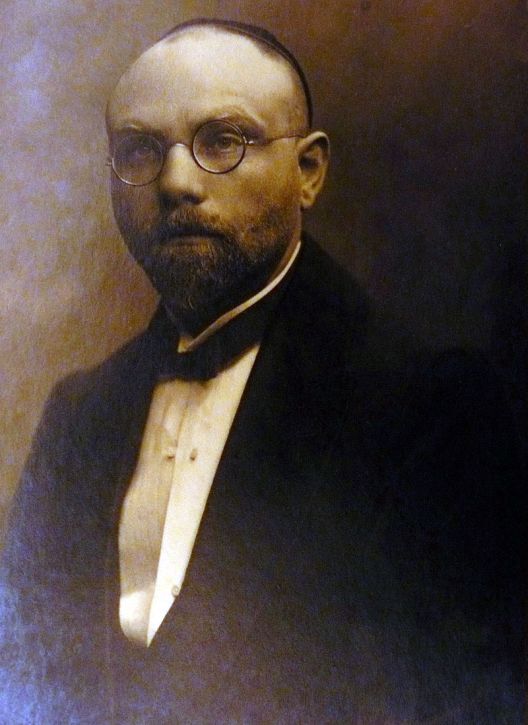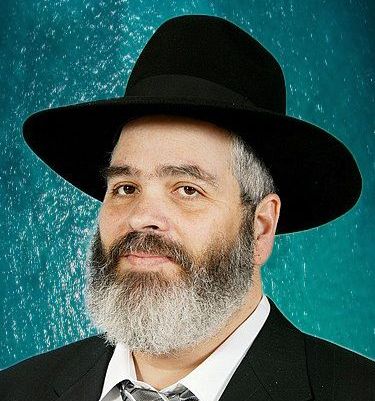  |
|
| |||||
This Google Custom Search looks only in this website. The 90th Anniversary of the Arrival of the Chazon Ish in Israel
Monday, the 16th of Tammuz, 5693 (1933). It was midsummer; dry, blazing winds blowing, draining every drop of moisture from the air. In spite of the weather, however, Agudath Israel trustees from Yerushalayim traveled to Jaffa to welcome the man whose ship was scheduled to dock that day. They were joined by askan Reb Dovid Potash and several others who, while not aware of the stature of this figure or not having heard about him either, were nevertheless greatly impressed by the letter of the prime leader of Torah Jewry at the time, HaRav Chaim Ozer Grodzensky, which testified, "My comrade and colleague, a veritable genius, is coming to you. It is a great loss to us, but for Eretz Yisroel, much benefit will be derived, and I trust that you will submit yourselves to the assessments of the Chazon Ish."
Why did he decide to immigrate?
The most identifying singularity of Covid, damage to the senses of smell and taste, has not altogether passed for many who otherwise recovered. A new study made by the Massachusetts Medical Center's Eye and Ear Department shows that a quarter of the victims in the U.S. have not yet fully recovered the loss of these two senses.
During the course of the pandemic, many victims experienced a loss of smell and taste during the illness and afterwards as well. Researchers from the Massachusetts General hospital, sought to quantify these losses. The study is based on data from the health study carried on in 2021 by the NHIS body connected to the U. S. Center for Disease Control (CDC) which includes 29,7000 Covid 19 victims. They were asked to describe the severity of their symptoms, focusing specifically upon the loss of smell and taste, and their degree of recovery therefrom.
This article was first published in 1995. Now in 5783 it is 99 years since these events and it is being published online for the first time.
Part III
Seventy-one years ago, on 29 Sivan, 5684, three pistol shots put an end to intensive efforts which would have nipped the Jewish-Arab conflict in the bud, when Dr. Yisroel Yaakov DeHaan was murdered on his way home from ma'ariv by agents of the Zionist leaders. His death marked the end of the last efforts of the old yishuv to take an active role in the political and diplomatic processes that surrounded Eretz Yisroel. Without DeHaan, the rabbonim of the old yishuv felt they had no way to influence or even participate in international negotiations, and the Zionists were more than happy to assume full responsibility for the future of Eretz Yisroel and even for the Jewish people as a whole, Rachmono litzlan.
The attitude and general policy followed by our rabbonim towards the Arabs — seeking peaceful coexistence, willingness to compromise and high priority for human life — is not something adopted recently as many think, but rather is the same consistent approach that was followed by HaRav Yosef Chaim Zonnenfeld and the other gedolim of the time a century ago. The rabbonim are guided by principles and not political expediency or a desire to favor one or the other political party.
Prior to his murder, Dr. DeHaan had worked for a long time to bring the views and attitudes of the rabbonim of the old yishuv to the attention of the Arab leaders. A long series of meetings and delegations, declarations and written summations took place under the direction and leadership of R' Yosef Chaim Zonnenfeld, zt'l, the rav of Yerushalayim.
Last week we described a meeting between a delegation of Yerushalmi rabbonim, including HaRav Yosef Chaim Zonnenfeld, with the king of what later became Saudi Arabia who was seen as the senior ruler of the Arab world. The rabbonim asked that they always be allowed to present their own approach and not just be represented by the Zionists, and that the Arab leaders treat the Jews living under their rule favorably, mentioning Yemen in particular. The meeting went well.
The Reaction to the Meeting
Attorney Ariel Blustein, writes about the duplicity of the Netanyahu-haters. "The wild attack of the judges involved in Case 2000 exposes the unbelievable hypocrisy of that camp, 'Just not Bibi.' During a short period, actually only a few days altogether, this camp overturned itself. It shed its last remains of respect, exchanging them with burning hatred against the court, which only yesterday was presented by them as a glowing example of probity and as the last bastion of democracy.
"The apparent collapse of accusations against Netanyahu evokes the worst from his enemies.
Some of them are excusing the very presentation of charges in a chilling statement which no one expected from the accusations that he be examined through a judicial process. Others argue that the floor is warped, or in this case — that the judges are no good.
* * *
Outstanding Articles From Our Archives
Opinion & Comment
by HaRav Shimon Moshe Diskin zt"l
Part III
In the first part, HaRav Diskin said that even though the Maccabeeim on the original Chanukah could have used impure oil to light the Menorah since it was for communal purposes, but since they were setting the foundation in chinuch of the Menorah they had to use pure oil in order to ensure that the subsequent avodas Hashem using it would be proper. Similarly, in setting the educational foundations of children, everything must be pure. Educating a child is not just educating one person - it is laying the foundation for generations to come.
A parent must do what is best for his child, and not be concerned with his own comfort. He should be concerned that his child fulfill all of his potential. Parents should not assume that their children are like themselves. One must not fight a modern war with last generation's weapons. The yetzer hora always makes sure to use the latest and most modern techniques, so he must be countered with the methods that can defeat him.
In the second part, HaRav Diskin explained that part of educating is to daven to Hashem for success. Brochos from tzadikim are no shortcut. A mother's tears are important for yiras Shomayim. Also, one educates by example as much as by what one explicitly tells his children. When answering them, we should give full, understandable replies and not superficial dismissals. We must inspect their reading material to ensure that it is not tainted. Do not take anything for granted.
Parents Must Always Take Interest in Their Children
On this occasion, I want to caution parents about a problem I have encountered in yeshivos and cheders. There are few parents who interest themselves in their children's education. This is even more so in yeshivos. In all the years I have been occupied with chinuch I have actually only met a few such individuals who sincerely inquired and kept track of their children's progress. This is not an exaggeration. I cannot specify the exact reasons for this, the fact that parents, after enrolling their sons in a yeshiva, remove from themselves the responsibility for their children's education. Apparently they assume that his neshomoh is handed over to a dependable guardian and they now need to devote only a little time to find out about the child's growth in Torah and yiras Shomayim. Only when, chas vesholom, a mishap occurs, they complain why the whole time they were not told about their son's weaknesses and are totally surprised.
IN-DEPTH FEATURES
by M. Musman
22 Tammuz, 5765 marks the 61st yahrtzeit of HaRav Avrohom Grodzensky zt"l, the mashgiach of Slobodka. Last year on parshas Voeschanon, we published some material describing his background and some of his accomplishments. This week and next we continue. These two articles describe the last years of HaRav Grodzensky's life that were lived in the Kovno Ghetto. As HaRav Efraim Oshry wrote, "Death in the ghetto was not always heroic. [But] ghetto life . . . [was,] in the spiritual sense, extremely heroic." HaRav Grodzensky's life and work, which ended very painfully in the Kovno Ghetto, is nonetheless an inspiration for us to see what man can reach, even when weighed down by unimaginable adversity. It is a lesson we must learn during the period of Bein Hametzorim.
Part I
In the Kovno Ghetto - Introduction
"The Kovno Ghetto . . . the word ghetto by itself evokes hardship, suffering, pain and distress, but mention of the Kovno Ghetto should bring on quaking and trembling. Nobody will ever be able to imagine what life was like there. Nobody has the right to question or delve into the halachic rulings that were issued, the Kovno Ghetto. If one was not there, one can have no idea of what death means or of what life was like there - of the dimensions of the danger or of how far-reaching the ramifications of the dread of dying were.
"Words can describe things; they can be used to try to give an accurate depiction. But they can never convey the intensity of life there or what our existence was like. Yet they are the only means we have for giving an inkling of what happened . . . " (Rabbi Yitzchok Elchonon Gibraltar, a survivor of the Kovno ghetto)
Rav Avrohom's last three years, which he spent in the Kovno Ghetto, were the crowning chapters of his life of teaching, guiding and inspiring others. In his earlier struggles with tragedy and adversity, he had worked mightily on himself to strengthen faith, accept Hashem's will and maintain a positive frame of mind and a cheerful bearing towards others. He emerged from those struggles greatly strengthened.
|
|||||




.jpg)



